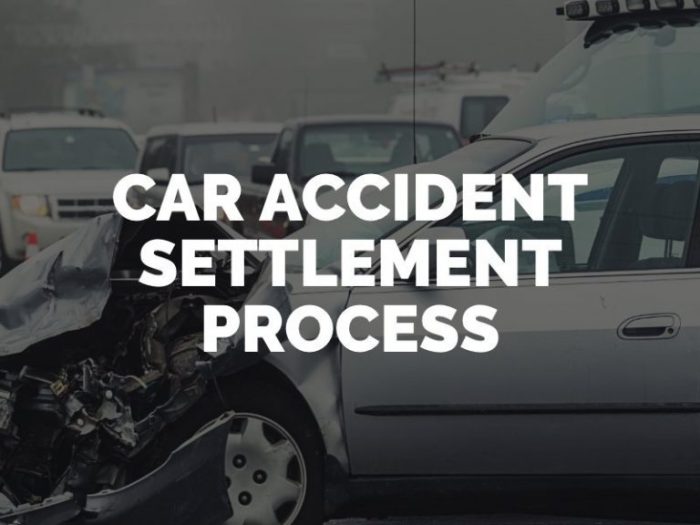Lawsuit compensation car accident – Lawsuit compensation for car accidents can be a complex and challenging process, but it is essential for victims to understand their rights and options. This comprehensive guide will provide an overview of the legal framework, types of compensation, proving damages, settlement and trial, factors affecting compensation, and ethical considerations involved in pursuing compensation in car accident lawsuits.
When a car accident leaves you injured, you may be entitled to compensation. Understanding the legal process can be daunting, but it’s essential to protect your rights. Consider seeking legal counsel to navigate the complexities of personal injury lawsuit settlements.
They can help you build a strong case and negotiate a fair settlement that covers your medical expenses, lost wages, and pain and suffering. Don’t let the legal complexities of a car accident overshadow your right to compensation.
Legal Framework: Lawsuit Compensation Car Accident

In the United States, the legal basis for pursuing compensation in car accident lawsuits is the tort law system. Tort law allows individuals who have been injured due to the negligence or fault of another party to seek compensation for their damages.
Negligence is the failure to exercise reasonable care, which is the level of care that a person of ordinary prudence would have exercised under the same circumstances. Fault is a broader term that encompasses negligence, as well as intentional acts that cause harm.
Types of Compensation
The types of compensation available in car accident lawsuits vary depending on the jurisdiction and the specific circumstances of the case. However, some common types of compensation include:
- Medical expenses: This includes the cost of medical treatment, such as hospital stays, doctor visits, and rehabilitation.
- Lost wages: This includes the income that the victim has lost as a result of the accident.
- Pain and suffering: This is a non-economic damage that compensates the victim for the physical and emotional pain and suffering that they have experienced.
Proving Damages
In order to recover compensation in a car accident lawsuit, the victim must be able to prove that the other party was negligent or at fault for the accident, and that the victim suffered damages as a result of the accident.
After a car accident, seeking compensation for your injuries is crucial. The accident lawsuit filing process involves gathering evidence, determining liability, and negotiating a settlement.
It’s essential to understand your rights and options to maximize your compensation for medical expenses, lost wages, and pain and suffering.
There are several methods that can be used to prove damages in a car accident lawsuit, including:
- Medical records: These records document the victim’s injuries and the treatment that they have received.
- Expert testimony: Experts, such as doctors and economists, can testify about the victim’s injuries, the prognosis for recovery, and the economic impact of the accident.
- Witness statements: Witnesses can provide testimony about the accident and the victim’s injuries.
Settlement and Trial
Most car accident lawsuits are settled before going to trial. In a settlement, the parties agree to a lump sum payment that will compensate the victim for their damages.
If the parties cannot reach a settlement, the case will go to trial. At trial, a jury will hear evidence from both sides and decide whether the defendant is liable for the accident and, if so, the amount of damages that the victim is entitled to.
Pursuing lawsuit compensation for car accident injuries can be a complex process. If you’ve been injured in a car accident, it’s crucial to understand your rights and legal options.
A personal injury court case may be necessary to seek fair compensation for your injuries, lost wages, and pain and suffering.
Consulting with an experienced attorney can guide you through the legal process and help you maximize your compensation.
Factors Affecting Compensation
The amount of compensation that a victim can recover in a car accident lawsuit depends on a number of factors, including:
- The severity of the victim’s injuries
- The amount of medical expenses that the victim has incurred
- The amount of lost wages that the victim has suffered
- The amount of pain and suffering that the victim has experienced
- The insurance coverage available to the defendant
- The jurisdiction in which the lawsuit is filed
Ethical Considerations

There are a number of ethical considerations that arise in the context of car accident lawsuits. One of the most important considerations is the potential for fraud.
Victims may be tempted to exaggerate their injuries or damages in order to obtain a larger settlement or verdict.
Another ethical consideration is the impact of car accident lawsuits on insurance premiums. Insurance companies often pass the cost of settlements and verdicts on to their policyholders in the form of higher premiums.
Final Review
In conclusion, understanding the legal process and seeking professional legal advice are crucial for maximizing compensation and ensuring fairness in car accident lawsuits.
By navigating the complexities of the legal system and advocating for their rights, victims can obtain the compensation they deserve to recover from their injuries and move forward with their lives.
FAQ Section
What are the different types of compensation available in car accident lawsuits?
Compensation can include medical expenses, lost wages, pain and suffering, property damage, and other economic and non-economic losses.
How is the amount of compensation determined?
The amount of compensation awarded is based on the severity of the injuries, the extent of economic losses, and the jurisdiction.
What is the role of an attorney in a car accident lawsuit?
An attorney can help victims navigate the legal process, negotiate with insurance companies, and advocate for their rights to maximize compensation.




